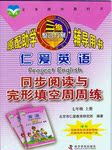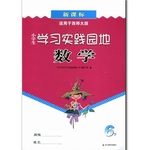题目内容
The head of the World Health Organization (WTO) yesterday warned of worsening health in the country's vast rural areas while praising the government for its commitment on improving healthcare in the countryside.
“The health indicators have failed to improve in pace with economic indicators.” said Margared Chan when addressing a conference on rural primary healthcare in
“The health gap between rural and urban areas has grown even wider and health in parts of rural China is deteriorating(恶化),”she said, adding medical costs are rising faster than the growth of per capital income in rural areas.
She said she appreciated the government's efforts and plans to build a medical system for all people. Saying “when fair and accessible public health services become the clear targets of a country's public health policy, people's health will improve.”
The WTO chief said she noticed that the tasks on improving people's well-being in the report by Party chief Hu Jintao at the 17th National Congress of the Communist Party of China included a basic medical insurance system for urban dwellers and a cooperative medical care system in rural areas.
She said recent WTO research has found that diseases are the source of poverty for 30 to 50 percent of the rural population of 737 million.
A growing number of rural people, especially the aged, are suffering from various diseases; however, few have access to decent healthcare, she told the conference.
Chan criticized the practice of allowing healthcare services to be commercialized in rural areas, warning it will cause the patients more suffering.
The government has pledged to provide its population with basic medical care by 2020.
It's expanding medical care through the Rural Cooperative Medical Scheme, a plan under which subscribers(受捐者) are provided with 50 yuan(2.6) each from the central and local governments and 10 yuan ($1.3) from the individual.
Vice-Minister of Health Chen Xiaohong said nearly 85 percent of the country's rural area, or 2,429 counties, are participating in the plan.
64. What can we infer from the passage?
A. Healthcare developed more slowly than economics.
B. Economics developed more slowly than healthcare.
C. The health indicators failed to improve economics.
D. Healthcare improved as much as economics.
65. Which of the following statements is WRONG?
A. Diseases are the source of poverty for the rural population
B. About 200 million of the rural population are poor because of diseases.
C. The government has taken some measures to improve the rural healthcare.
D. The local governments will give 20 Yuan to each rural person
66. What is Margaret Chan’s attitude towards The Rural Cooperative medical Scheme ?
A. doubtful B. disappointed C. satisfied D. anxious
67. Which of the following can be chosen as the best title for this passage?
A. Healthcare in Rural Area Faces Challenges
B. The Head of the WTO----Margaret Chan
C. The Comparison of Rural and Urban Healthcare
D. The Importance of the Rural Healthcare
ABCA

 仁爱英语同步练习册系列答案
仁爱英语同步练习册系列答案 学习实践园地系列答案
学习实践园地系列答案It must have been around nine o’clock when I drove back home from work because it was already dark. As I came near to the gates I turned off the head lights of the car so as to prevent the beam from swinging (摆动) through the window and waking Jack, who shared the house with me. But I needn’t have done so. I noticed that his light was still on, so he was awake anyway—unless he had fallen asleep while reading. I put the car away and went up the steps.
Then I opened the door quietly and went to Jack’s room. He was in bed awake, but he didn’t even turn towards me.
“What’s up, Jack﹖” I asked.
“For God’s sake, don’t make a noise,” he said.
The way he spoke reminded me of someone in pain who is afraid to talk in case he does himself serious injury.
“Take your shoes off, Neville,” Jack said.
I thought that he must be ill and that I had better give way to him to keep him happy. “There is a snake here,” he explained. “It’s asleep between the sheets. I was lying on my back reading when I saw it.I knew that moving was out of the question. I could not have moved even I’d wanted to.” I realized that he was serious. “I was depending on you to call a doctor as soon as you came home,” Jack went on. “It has not bitten me yet but I dare not do anything to upset it. It might wake up. I’m sick of this,” he said.“I took it for granted that you would have come home an hour ago.”
There was no time to argue or apologize for being late.I looked at him as encouraging as I could and went to telephone the doctor.
【小题1】When he got home, Neville found that _____.
| A.Jack had fallen asleep while reading | B.Jack had been reading for some time |
| C.Jack’s light was not turned off | D.Jack was ready to answer the doctor |
| A.impossible | B.no problem | C.no doubt | D.without difficulty |
| A.Neville and Jack lived in the same house. |
| B.Neville thought that Jack had fallen ill. |
| C.Neville really believed that Jack was not making a joke. |
| D.Neville refused to argue or to make an apology for being late. |
| A.asked Neville to take off his shoes |
| B.made a gesture to show the presence of the snake |
| C.was afraid to upset the snake sleeping between the sheets |
| D.behaved strangely as if he were badly hurt |
| A.7 p.m. | B.8 p.m. | C.9 p.m. | D.6 p.m. |
第四部分: 书面表达(共两节, 满分35分)
第一节 填空 ( 共10小题;每小题1分, 满分10分)
阅读短文,根据所读内容在文后76--85的空格里填上适当的单词或短语, 并将答案转写到答题卡上。注意:每空不超过3个单词。
In many English homes four meals are served; they are breakfast, lunch, tea and dinner. These are the meals that are served in the homes of people who are well to do.
Breakfast may be served any time for seven to nine. It consist of porridge, bacon and eggs (boiled or fried), butter toast or bread-and-butter with marmalade (酸果酱). Instead of bacon and eggs, fish may be served. Either tea or coffee is drunk at breakfast.
Lunch comes at about one o’clock. It generally consists of cold meat (left over from yesterday’s dinner), potatoes, and salad. After that there is bread or biscuits and cheese. Most people drink water at lunchtime; some drink beer or wine. It is not the custom to drink the spirits (烈性酒) like whisky or brandy even wealthy homes in the middle of the day.
Afternoon tea, taken between four and five, is the most informal meal of the day. If you are a friend of the family you may drop in for tea without an invitation or telling them that you are coming. Each person has a cup and saucer, a spoon and a small plate for bread-and-butter and cake. By the way, do not help yourself to cake first; bread-and-butter first, and then cake if there is any. Another piece of advice: do not put more than one piece of bread or cake on your plate at the same time.
Dinner is the most substantial (丰盛的) meal of the day and is a very formal meal. Many people even wear special clothes for dinner, so if you are asked out of dinner you must find out whether you are expected to wear a dinner suit; for you would feel very embarrassed if, when you go there, you were the only person in ordinary clothes. Dinner is generally served at about half past seven. All the members of the family sit down together and are on their best behavior. The head of the family sits at one end of the table; his wife sits at the other. If there is a guest, he generally sits in the place of honor, which is at the right of lady of the house. If there are several guests the most important is asked to sit there. During the meal conservation is carried on, you should try to get into the conversation with the person on your right or left, but you should not try to talk to someone who is a long way from you.
Title: 76._______________________
|
77. ___________ |
79. _____________ |
Food |
Drinks |
Notes |
|
Breakfast |
7 to 9 a.m. |
Porridge, bacon & eggs, etc |
83. ________________ |
|
|
Lunch |
80. _____________ |
Cold meat, potatoes, salad, bread, biscuits & cheese |
84. ________________
|
|
|
Afternoon tea |
4 to 5 p.m. |
82. ______________________ |
tea |
85. __________ |
|
78. ___________ |
81. _____________ |
|
|
Most formal |



